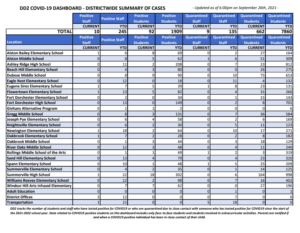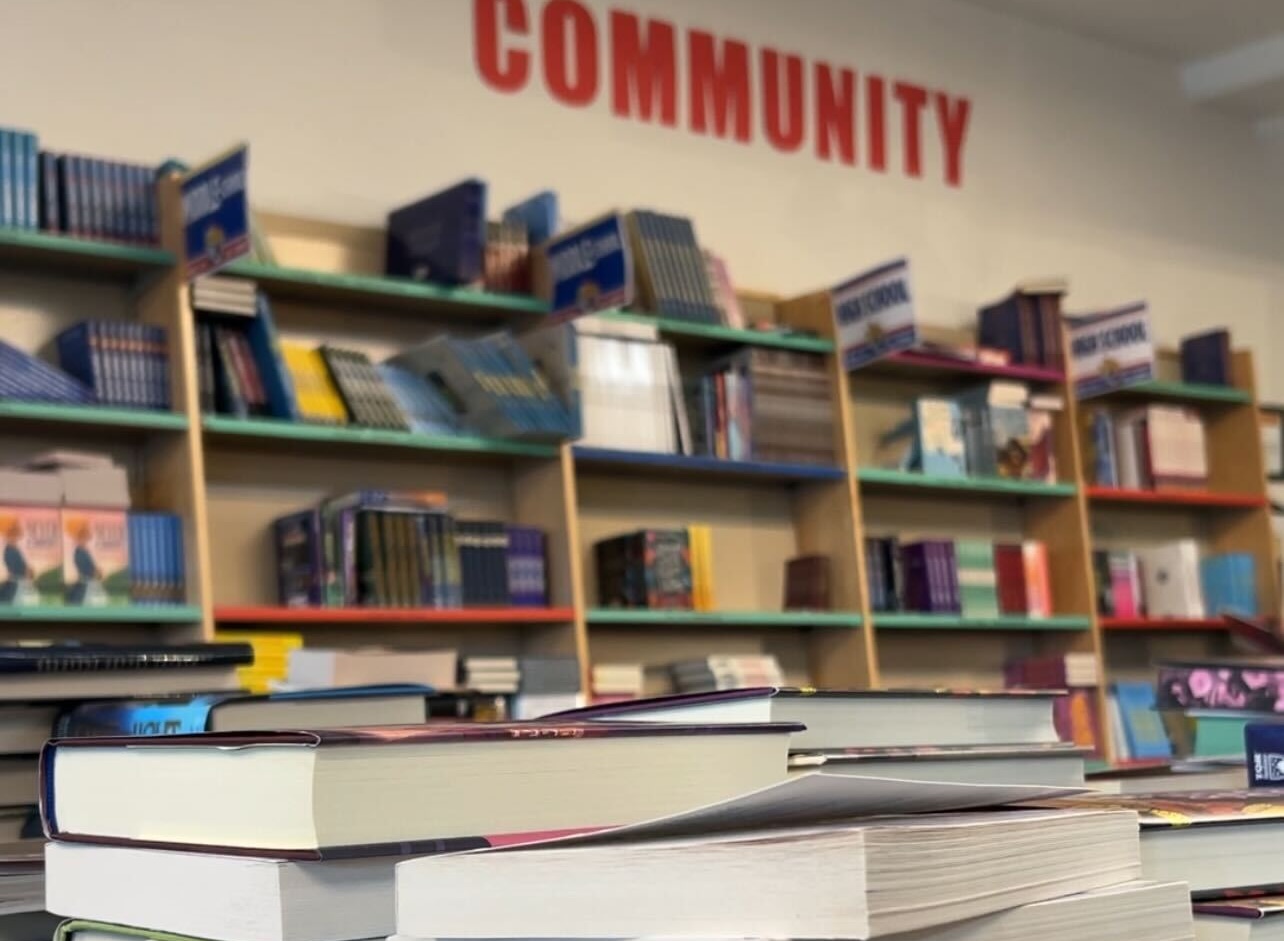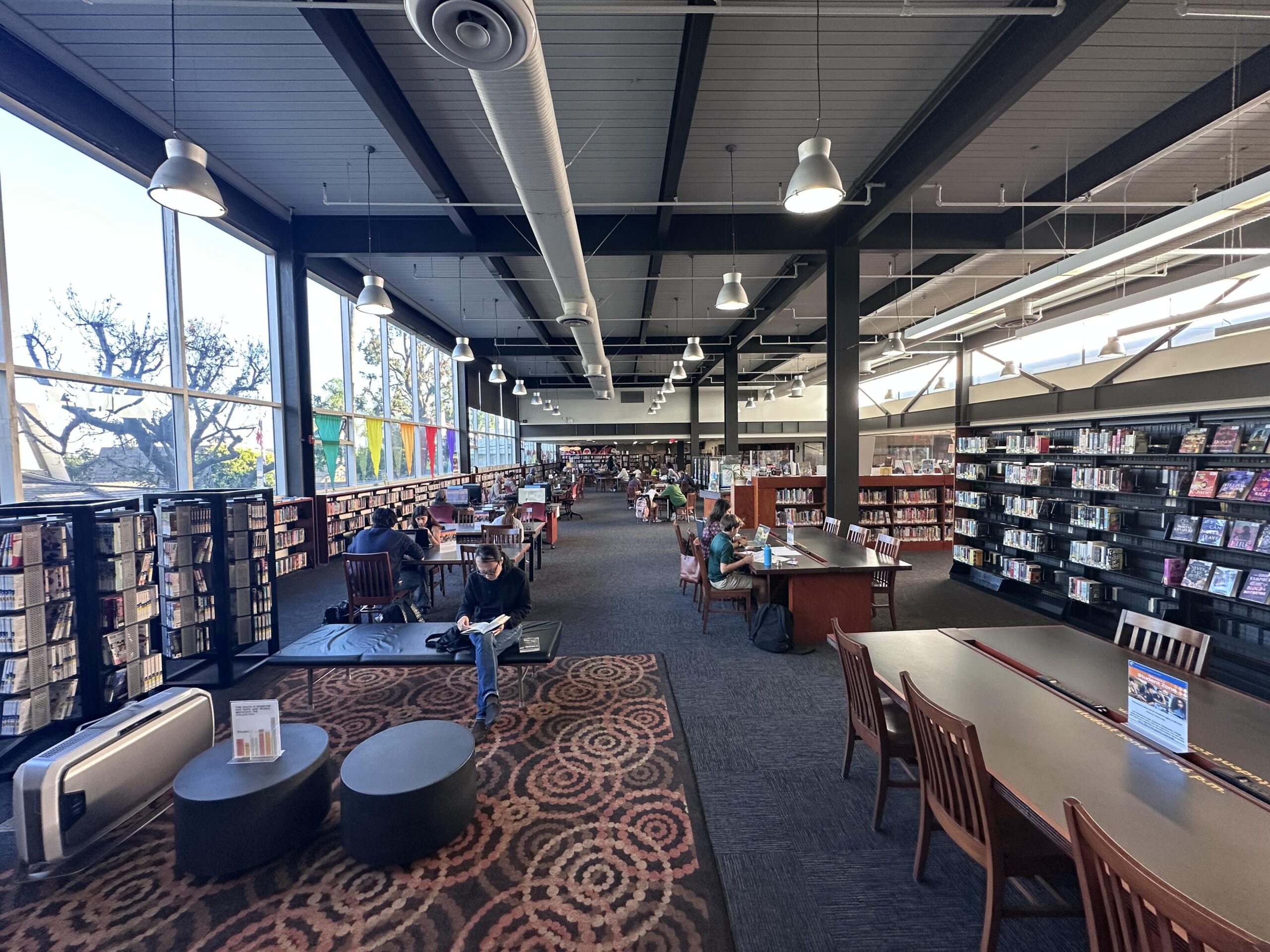(SUMMERVILLE, S.C.)– All faculty and students within Dorchester District Two returned to school on Sept. 16 following a seven day virtual learning period after rising COVID-19 cases.
The virtual learning period was implemented from September 7 to September 15 and was put in place in hopes of slowing the spread of coronavirus and ease the pressure of school operations.
With more than 20 percent of students and 256 faculty testing positive, or being quarantined due to possible exposure, schools were faced with a shortage of staff and students to maintain effective learning.
Dorchester District Two reported on September 6 that out of its estimated 26,000 students, 4,559 were quarantined and 526 were actively testing positive for COVID-19.

Dorchester District Two updated COVID-19 statistics as of Sept. 26th. [credit: Dorchester District Two]
These include mandatory face coverings on bus transportation, a decrease in time for performance classes from 50 to 30 minutes, limited in-person extracurricular activities, assigned classroom seating, and cleaning classrooms and desks before class changes.
The school board also reduced the quarantine time of 14 days for staff and students, regardless of vaccination status.
Students must quarantine for 10 days after exposure to COVID-19 and will not be released with a negative test.
Faculty quarantine is 7 days after exposure to COVID-19, and a PCR or antigen test must be provided no sooner than day 5 from exposure to be cleared.
If a faculty member does not get tested and is asymptomatic, they are able to return on day 10 from exposure.
Both students and faculty with symptoms during their quarantine must complete a 10 day isolation period from when symptoms began.
In light of the virtual learning period, a speech pathologist at Spann Elementary recalled that time away from in-person learning was beneficial for students to be able to see the teacher’s mouth movements while learning.
“Face to face with masks is very hard for learning and speech progress,” said Margaret Smith. “Although virtual learning is tough at times, I was really able to articulate the lessons well with the kids because they could see my mouth and I could see theirs.”
As for updated COVID-19 safety protocols, Smith is hopeful that the school board’s decisions will make “a necessary change for students’ and faculty’s ability to continue the school year.”

